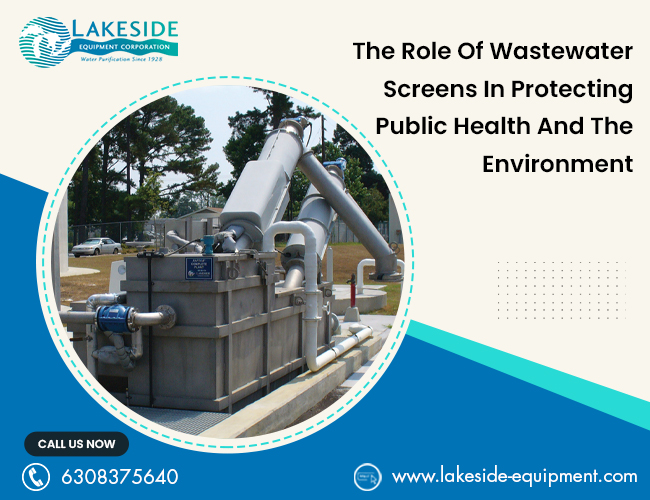Why Wastewater Screens are Essential for Cleaner, Safer Water?
With increasing industrialization and population growth, clean and safe water is getting rare in today's world. Technologies for water treatment depend on the safety of public health, make the ecosystem durable, and ensure drinking water safety. Wastewater screens is part of several technologies that ensure achievement in these functions. They create an integral part of waste water treatment.
Wastewater screening is an important procedure to eliminate solid waste and waste from raw wastewater before undergoing more stringent treatment. But what are wastewater screens, and why are they so important for cleaner and safe water?
What Are Wastewater Screens?
Technically, wastewater screens are machines deployed to sift out large debris and solids from wastewater. From raw sewage to industrial facility runoff, wastewater tends to have a mix of contaminants, from organic matter to plastics and metal items. These contaminants will harm the environment and public health, as well as subsequent treatments.
Wastewater screens are the initial defense in eliminating these unwanted particles. They come in different shapes, based on the degree of filtration required in terms of thick screen, fine screen, and micro screen.
How Wastewater Screening Works?
Wastewater screening is the procedure of running raw wastewater through screens with different mesh or perforation sizes. The bigger solid objects, including plastic, leaves, and pieces of organic material that are larger in size, are strained by the screen while the smaller dissolved substances move downstream for more treatment.
Coarse screening generally comes first in the process. This phase takes out the largest debris so that there is a smoother flow through the remainder of the treatment system. Fine screening is generally the second phase, which is intended to take out smaller solids such as grit and fine organic matter.
High-micro screening will be able to remove very small particles that could remain, making wastewater as pure as possible before proceeding with secondary treatment processes such as biological treatment and chemical disinfection.
The Function of Wastewater Screens in Sludge Screening Systems
One of the most important processes of wastewater treatment is mud generation. These waste products, in the form of focused solid waste, should be managed effectively to avoid contaminating the environment. The purpose of a sludge screening system is to separate and treat this product so that it is either dealt with safely or used as a valuable object, such as fertilizer or biogas.
Wastewater screen is also an important function in the process of mud formation by filtering huge pieces of debris that will otherwise be a part of the mud. The screen allows only small particles and organic materials to pass for later healing processes, in which they pass through further separation and treatment.
Ensuring Cleaner, Safer Water: The role of wastewater screens is far more important, beyond the removal of solids. They play an immediate role in the overall objective of wastewater treatment, which is to purify water for reuse or safe discharge into the environment.
System Protection: Wastewater screening pumps, valves, and biological treatment are designed to protect sensitive equipment, including real healing processes.
Environmental Effects: In an early stage, the wastewater screen prevents these contaminants from reaching natural water bodies, where they can be harmful to aquatic life and ecosystems.
Public Health: Undevished or inadequately treated wastewater can bring crowds of pathogens, chemicals, and toxins into communities. Wastewater screen works to reduce the spread of the disease by eliminating large solids and toxins before entering the water supply.
Conclusion
Wastewater screen treatment process has more than only equipment-they are visual heroes behind contemporary water management. They protect treatment systems, reduce environmental footprints, and most importantly we guarantee the hygiene and safety of the water we rely on daily.
In the era surrounded by increasing issues of water pollution and reduction, techniques such as wastewater screening, mud screening systems, and refined wastewater treatment are important for a permanent future.




Comments
Post a Comment